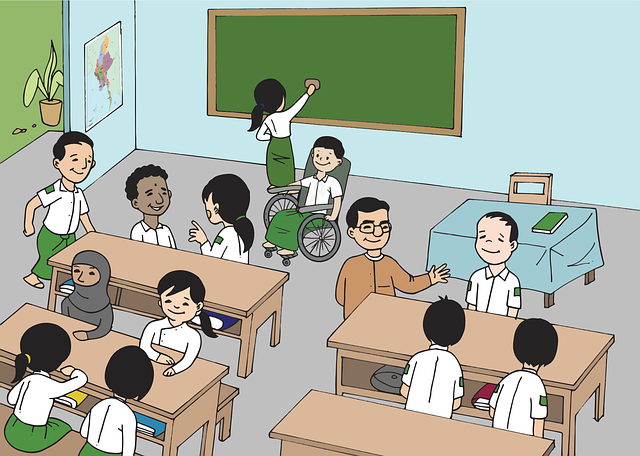Talking to Your Children About Disability
Image by Mote Oo Education from Pixabay
Talking to children about disabilities may help them to better understand and accept people’s differences. According to the Centers for Disease Control and Prevention, one out of every four adults in the U.S. has some type of disability. As they come in contact with people who have mental or physical disabilities, children may naturally have questions. Parents may use such situations as an opportunity to educate their kids about disabilities and to foster inclusivity.
Acknowledging the Differences and Similarities
When children notice and ask questions about disabilities, parents may use the chance to acknowledge that some people may look, move, talk, or act differently, and to help their kids understand why. People’s first inclinations when kids point out disabilities may be to shoo them away from the topic or to shame them for their questions. Instead, though, parents may better help their children to learn and grow by discussing disability as just another part of the diverse world they live in.
In addition to acknowledging the differences disabilities may cause, parents may also point out to their children the similarities they may share with those with disabilities. Understanding they may share things in common, despite the differences resulting from disabilities, may help increase children’s empathy and better relate to others.
Emphasizing Respect
As they talk to their kids about disabilities, parents should use straightforward, respectful language. Euphemisms such as differently-abled or special needs may instill the idea that disabilities are something they should pity or even fear. Using respectful language when talking to children about disabilities may help parents instill respect for people’s differences in their kids.
Giving Matter-of-Fact Answers
Parents should teach their children and answer their questions about disabilities in a direct manner. Imbuing emotions into such conversations may elicit pity for the disability community, which does not serve those with disabilities or children as they grow. Rather, parents may better help their children learn by giving them matter-of-fact explanations. For example, they may explain that grandpa has trouble hearing and needs a hearing aid because the loud planes he worked on in the military caused damage to his ear’s insides or that the muscles in a person’s legs do not work the same as theirs and that makes it difficult for the person to walk.
When children’s questions relate to a family member or close friend, parents may consider asking that person to talk to their kids. Those living with disabilities may be happy to answer their questions and help children learn more about their conditions.
Learning Together
When kids ask about disabilities, parents may take the opportunity to learn more about such mental and physical conditions with them. Especially if they do not know the people whom their children have questions about, parents may not have all the answers regarding disabilities. If they do not know the answer to a child’s questions about a birth injury or other disabling condition, parents should not fear saying they do not know. Watching educational television shows, listening to educational podcasts, and reading age-appropriate books on the subject of disabilities may help adults and children learn more about the experiences of those with mentally or physically disabling conditions.

